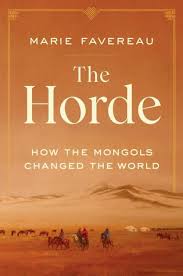An old post written by Dr Asif Javed (who has also included this in his book, an interesting collection of articles published as “The Doctor from the East”
Bhutto Legend: Myth and Reality
By Dr Asif Javed
Williamsport, PA
“I feel that your services to Pakistan are indispensable. When the history of our country is written by objective historians, your name will be placed even before that of Mr. Jinnah.” The writer of this infamous piece of consummate flattery was a young Z.A. Bhutto, and the recipient, Sikander Mirza, who should be in the political hall of shame, if one were ever to be erected in Pakistan.
Balawal Zardari has recently made a lot of noise about Z.A. Bhutto’s trial and demanded apology for the unjust verdict handed out to his grandfather. It has become very fashionable lately to call it a “judicial murder”. This writer is not a lawyer nor am I a politician; I do, however, belong to the unfortunate generation that witnessed the events of his grandfather’s time in power, and fall from it. It is said that legends ossify over time; in Bhutto’s case, certainly that appears to be so. Bhutto worship has become a relentless train that shows no signs of slowing down; instead, it keeps gathering speed. In the process, the established historical facts are being denied or distorted, and myths are being created. KK Aziz may easily write another volume of Murder of history based upon what we have seen recently.
Z.A. Bhutto was widely admired for his genius. Henry Kissinger may not have been way off the mark when he remarked, “Elegant, eloquent, subtle. . . .I found him brilliant, charming, of global stature in his perceptions. . . .He did not suffer fools gladly.”It is however, the other side of ZAB—the dark one—that needs to be revisited. In the process, perhaps we, as a nation, may learn some lessons and see things in the right perspective. Khalid Hasan, a life long admirer, who knew ZAB first hand, and worked as his press secretary, may have written the most balanced and insightful short biography of ZAB. He has summed it up eloquently: “ZAB had all the makings of a classical hero, carrying the seeds of self destruction in him—he was a flawed genius, a god who turned out to have feet of clay. . . .ZAB had many personal failings, including an inability to trust others, a congenital suspicion of friends and high sensitivity to personal criticism.”
With rare insight and objectivity, KH writes: “There is no evidence that US government or any of his agencies played a role in the overthrow of Bhutto—the time has come for us to accept that much of what has happened to our country and our leaders has been the result of our own mistakes. . . .ZAB believed that a country should have only one central figure as leader and all power should flow from him. It is a tragedy that a man of Bhutto’s intelligence, education and sense of history did not appreciate that Pakistan could only survive as a federal state with the provinces enjoying the maximum autonomy. Bhutto could not abide rival claimants to power even if they were elected to their office. He could not work with the opposition run provincial governments in Quetta and Peshawar and squeezed them out; that was his undoing. Bhutto forgot that power in order to be kept, must be dispersed.” KH also notes that it was Bhutto who revised ISI’s charter to include domestic political intelligence.
It is widely believed that Bhutto was hanged for a crime that he did not commit. It is rarely, if ever, asked, who then was the real perpetrator? Continue reading Zulfi Bhutto of Pakistan; the dark side chronicles
 My first steppe piece on Indo-Europeans is up at my Substack. It, and the subsequent steppe pieces are going to be paid.
My first steppe piece on Indo-Europeans is up at my Substack. It, and the subsequent steppe pieces are going to be paid.
